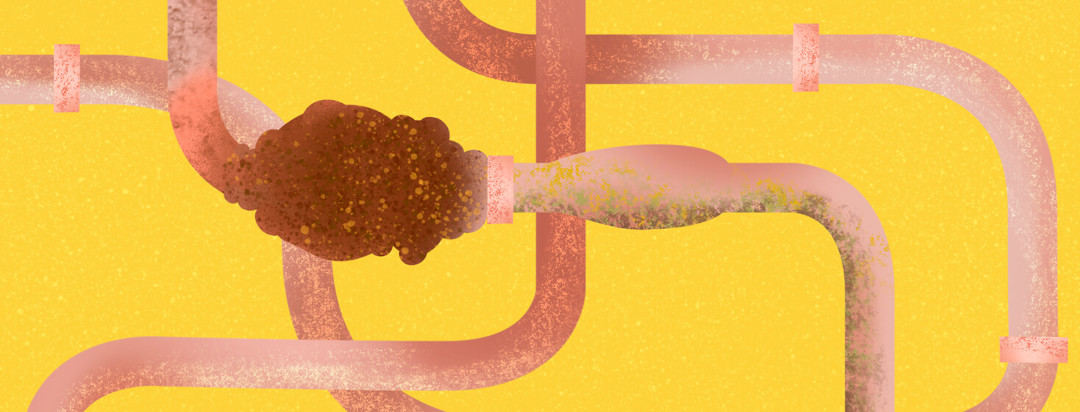What Is Distal Intestinal Obstructive Syndrome (DIOS)?
Distal intestinal obstruction syndrome (DIOS) is a condition where the small intestines get blocked by thickened stool. About 15 percent of people with cystic fibrosis (CF) experience DIOS. It happens because of poor nutrient absorption and reduced flow through the intestines.1,2
Symptoms of DIOS include abdominal pain and cramping. Other complications may show similar symptoms, such as constipation and appendicitis. Treatment usually involves fluids and laxatives. Surgery is rarely needed.1,2
DIOS explained
DIOS involves blockage of the small intestines by thick stool. It is similar to meconium ileus, which is bowel blockage in infants. But DIOS usually occurs in adults with pancreas issues, such as people with cystic fibrosis.1,2
DIOS is similar to constipation, but the blockage is higher up in the intestines. It may be caused by diet changes, dehydration, or poor adherence to pancreatic enzyme treatment. It is also more common in people who have a history of meconium ileus or DIOS.1,3
DIOS is diagnosed based on imaging tests. Ultrasound and computed tomography (CT) scans of the abdomen will show enlarged areas of the intestine with thick fecal material. DIOS can either be “incomplete” or “complete” depending on the level of intestinal blockage.2
Mucus buildup and malabsorption
In CF, a protein called cystic fibrosis transmembrane regulator (CFTR) does not work in the body. This causes abnormal fluid transport in the lungs, pancreas, and other organs. In the lungs, mucus becomes dehydrated and small airways get blocked. In the intestines, mucus builds up and slows down material traveling through the intestines. This makes obstructions in the intestines more likely.2
Most people who experience DIOS have pancreatic issues because of mucus buildup in the pancreas. They do not have enzymes in the pancreas that are needed to break down food. This leads to problems absorbing nutrients (malabsorption). Malabsorption can cause stool to become thick and sticky.4,5
DIOS symptoms
Symptoms of DIOS include:1,3
- Crampy abdominal pain
- Feeling of fullness and diarrhea
- Fewer bowel movements
- Tangible mass in the lower right area of the abdomen
- Vomiting
Other conditions may have similar symptoms to DIOS. This includes:2
- Adhesions from previous surgery
- Appendicitis
- Crohn’s disease
- Constipation
- Hernia
- Intussusception (bowel obstruction because one part of the intestine slides into another part)
- Volvulus (bowel obstruction because of twisting or knotting of the intestine)
In constipation, symptoms appear more gradually. X-rays may also show more extensive fecal buildup in constipation. However, making a diagnosis of either DIOS or constipation may not be important because initial treatment is similar.2
Appendicitis and intussusception can be ruled out by imaging tests, such as ultrasound. Intussusception occurs in about 1 percent of people with cystic fibrosis and can also occur as a complication of DIOS.2
Treatment and prevention
Surgery is rarely needed because treatment is usually effective. Treatment for incomplete DIOS includes:1,2
- Increased fluid intake
- Laxatives, especially types that cause the intestines to hold more water (osmotic laxatives)
Treatment for complete DIOS may involve more aggressive hydration and laxative techniques. People who experience an episode of DIOS have a higher risk of repeated episodes. Some ways to prevent DIOS include:2,3
- Drinking plenty of fluids
- Eating regularly
- Taking medication to regulate bowel movements
- Taking pancreatic enzymes to reduce malabsorption
Have you or a loved one with CF experienced DIOS? Share your story with us!

Join the conversation